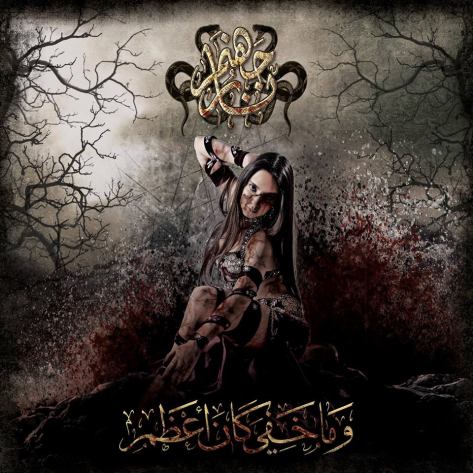Cover for the most recent album Wa Ma Khufiya Kana A’atham (2013) by Bahrainian oriental metal band Narjahanam
Metal music has gone global. It is a fact that is recognized by most fans and followers of this genre of popular music. Many documentary films, academic books, and media features have documented excitedly the globalization of metal music tracing it to the farthest corners of the globe.
One of the regions in which metal music has thrived in the past decade is the Middle East. Following the explosion of folk metal—a variety of metal music in which folk tunes, instruments, and themes are fused with conventional metal music—in European metal scenes some 15 years ago, many Middle Eastern bands have attempted to create their own version of folk metal. The term “oriental metal” has hence entered metal nomenclature to refer to bands that incorporate “oriental” sounds with metal music.



